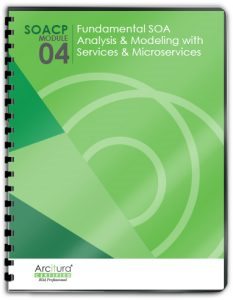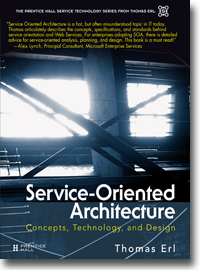SOA Patterns > Basics > SOA Methodology > Service Models > Utility Services
Utility Services

Each of the previously described service models has a very clear focus on representing business logic. However, within the realm of automation, there is not always a need to associate logic with a business model or process. In fact, it can be highly beneficial to deliberately establish a functional context that is non-business-centric. This essentially results in a distinct, technology-oriented service layer.
The utility service model accomplishes this. It is dedicated to providing reusable, cross-cutting utility functionality, such as event logging, notification, and exception handling. It is ideally application agnostic in that it can consist of a series of capabilities that draw from multiple enterprise systems and resources, while making this functionality available within a very specific processing context.
The example on the right shows a utility service providing a set of capabilities associated with proprietary data format transformation.
Utility services are also known as application services, infrastructure services, or technology services.

